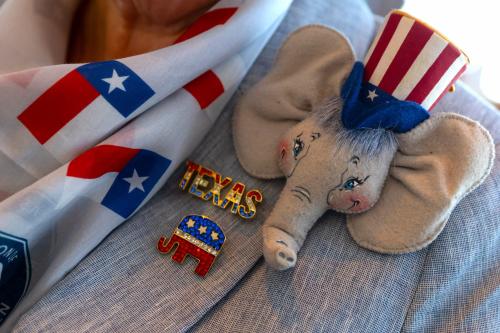Hillary Clinton recently garnered two important endorsements: one from the service workers’ union, SEIU, and the other from the environmental group, the League of Conservation Voters. These organizations chose Clinton over candidates with more aggressive platforms on workers’ rights and the environment, and they opted to endorse early in the process, before any voters have gone to the polls. In doing so, they have frustrated a substantial number of their base union and environmental activists.
Is this smart politics for activists? And how much does it help the Clinton campaign? Coordinating with a party is often a social movements’ best chance at policymaking influence—but that doesn’t mean early endorsements are the way to go.
First, let’s look at the strategy . LCV’s political director Dan Weiss laid it out, in a terse tweet. “Most important: win WH.”
Winning the White House is, of course, Hillary Clinton’s goal, not LCV’s. But the key is to recognize that, once union workers and environmentalists became stalwarts of the Democratic Party, their leadership began to represent party interests rather than simply their own movement.
Daniel Schlozman, political scientist at Johns Hopkins University, studies the connections between labor and the Democrats in his fascinating and deeply researched new book, When Movements Anchor Parties. When labor became part of the New Deal Democratic Party coalition, he argues, they made a trade-off, accepting closer ties to policymaking power in exchange for losing their radical edge. I asked him about the calculations facing groups like SEIU. “This is the decision the labor movement has made writ large since the 1930s,” he told me.
“The decision is not being made in ballots of union members,” Schlozman noted. “These are elite negotiations. What they want is the ability to influence policy, to get concessions, inside a future Democratic Administration.” That choice “means severing themselves from what are often deeply held commitments to principle. It is a high price.”
That’s the cost of the pragmatic endorsement. But what’s the upside?
First, these endorsements officially unleash tremendous campaign resources. Both SEIU and LCV command impressive electoral armies; SEIU has about two million members and was the top outside spender for the Democratic Party in 2012. LCV can also muster tens of millions of dollars in favor of their candidates. These are resources the party needs, and resources that should give interest groups leverage once their candidate is in office.
But because these advantages are so wrapped up in the election process as a whole, it is hard to distinguish the precise effect of the endorsements on electoral outcomes. (An interesting paper looked at the impact of Oprah Winfrey’s endorsement of Barack Obama in 2007, and concluded that Oprah brought Obama one million extra votes. Hard to say what this means for other endorsers, however; there really is only one Oprah Winfrey.)
In fact, the most concrete effect of endorsements may well be felt in the primary. Endorsements help a candidate signal that he or she has got the nomination in hand. Endorsements predict victory in primary elections, where primary polls can be misleading. At this point in the last Republican presidential primary, Herman Cain was losing ground, and Newt Gingrich’s star was rising in the national polls. In November 2007, Hillary Clinton’s poll numbers were still far ahead of Barack Obama. That doesn’t mean endorsers are always right, of course—SEIU endorsed Howard Dean at this point in 2004. His campaign imploded only weeks later.
For Hillary Clinton’s strategists, who surely recall the painful loss to Barack Obama in 2008, sealing up the primary might be the top priority. But here’s the rub: the appeal of an easy primary season does not necessarily carry over into the general election.
An easy primary could be helpful in two ways. First, it allows a candidate to redirect attention and resources out of early primary states and into likely battleground states in the general election. Second, an easy primary keeps a candidate from having to make too many concessions to their base that are out of keeping with the preferences of the general electorate. This presumed advantage may not matter as much as you’d expect, however. In 2012, for instance, Mitt Romney was widely perceived as struggling to walk back his newfound conservatism for the general election, but the data suggest that voters did not perceive him as terribly conservative.
However, there are important reasons to believe that a strongly contested primary might aid a candidate, rather than hurt them. First, the media loves a horserace, so competition makes it comparatively easy for a candidate to get into the news. Second, a busy primary might keep a candidate’s campaign machine nimble and responsive, geared up for the real fight in the fall. Finally, a long primary might help engage the rank-and-file party members. All of these potential advantages dissipate if the primary is seen as a cakewalk.
So what should we make of the early endorsements of Clinton this year? The irony here is that endorsements that arrive early, though motivated by party interests, have not yet been proven to aid the candidate much when it counts: the general election.


Commentary
Clinton’s endorsements: Smart politics for activists, or campaigns?
November 24, 2015